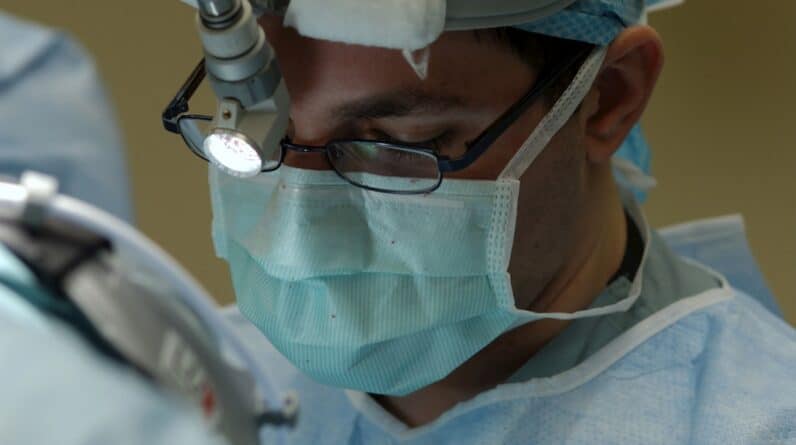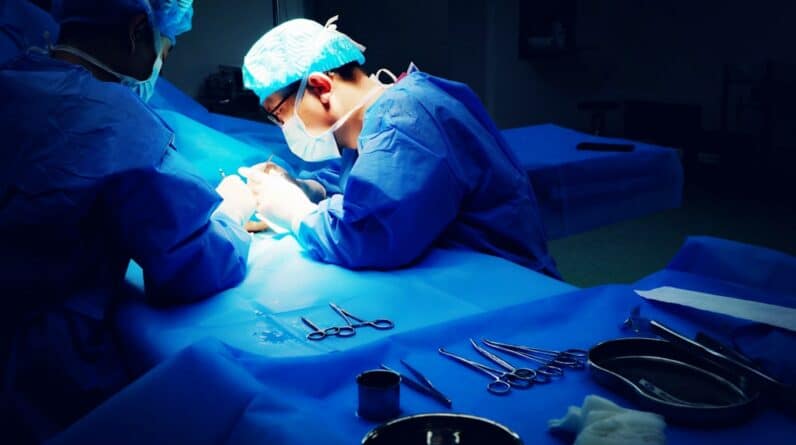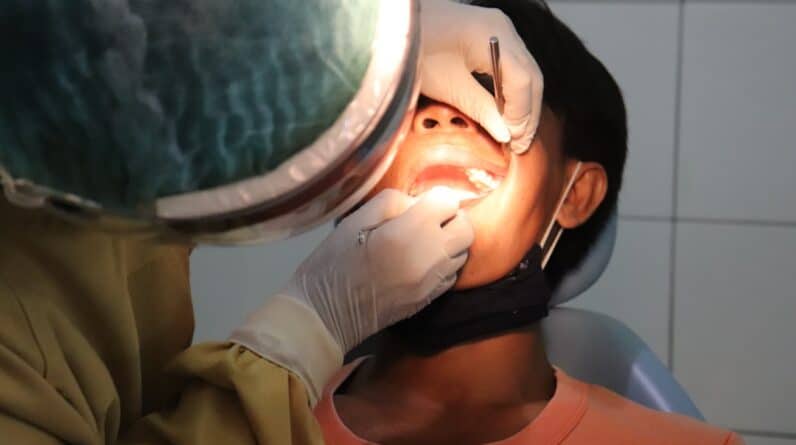Laser vision correction is a revolutionary approach to treating refractive errors in the eyes, such as myopia (nearsightedness), hyperopia (farsightedness), and astigmatism. This innovative procedure utilizes advanced laser technology to reshape the cornea, the clear front surface of the eye, allowing light to focus more accurately on the retina. By doing so, it can significantly reduce or even eliminate the need for glasses or contact lenses.
As you delve into this topic, you will discover how this procedure has transformed the lives of millions, providing them with clearer vision and greater freedom. The process of laser vision correction is not merely a one-size-fits-all solution; it is tailored to meet the unique needs of each individual. Before undergoing the procedure, you will undergo a comprehensive eye examination to assess your vision and overall eye health.
This evaluation helps determine whether you are a suitable candidate for the treatment and which specific technique may be most effective for you. Understanding the intricacies of laser vision correction is essential, as it empowers you to make informed decisions about your eye care and vision correction options.
Key Takeaways
- Laser vision correction is a procedure that uses a laser to reshape the cornea and correct vision problems.
- The benefits of laser vision correction include improved vision, reduced dependence on glasses or contact lenses, and increased quality of life.
- Good candidates for laser vision correction are adults with stable vision, healthy eyes, and specific vision problems like nearsightedness, farsightedness, or astigmatism.
- There are different types of laser vision correction procedures, including LASIK, PRK, and SMILE, each with its own advantages and considerations.
- Before laser vision correction, it’s important to prepare by undergoing a comprehensive eye exam, discussing expectations with the surgeon, and following pre-operative instructions.
Benefits of Laser Vision Correction
One of the most significant benefits of laser vision correction is the immediate improvement in visual acuity. Many patients report seeing clearly without the need for corrective lenses almost immediately after the procedure. This newfound clarity can enhance your daily life in countless ways, from enjoying outdoor activities without glasses slipping down your nose to waking up in the morning without fumbling for your contacts.
The freedom that comes with improved vision can be liberating, allowing you to engage in activities that may have been hindered by poor eyesight. In addition to the practical advantages, laser vision correction can also have a profound impact on your self-esteem and confidence. Many individuals feel more comfortable and self-assured when they no longer rely on glasses or contacts.
This boost in confidence can extend beyond personal interactions; it can also influence your professional life, as clearer vision allows you to perform tasks more efficiently and effectively. Ultimately, the benefits of laser vision correction extend far beyond just improved eyesight; they encompass a holistic enhancement of your quality of life.
Candidates for Laser Vision Correction

Not everyone is an ideal candidate for laser vision correction, and understanding the criteria can help you determine if this procedure is right for you. Generally, candidates should be at least 18 years old and have stable vision for at least a year prior to the procedure. Additionally, certain medical conditions, such as autoimmune diseases or severe dry eye syndrome, may disqualify you from being a suitable candidate.
It’s essential to have an open and honest discussion with your eye care professional about your medical history and any concerns you may have. Moreover, your refractive error must fall within specific parameters for laser vision correction to be effective. While many people with mild to moderate myopia, hyperopia, or astigmatism can benefit from these procedures, those with extreme prescriptions may need alternative solutions.
Your eye doctor will conduct a thorough evaluation to assess your candidacy and discuss any potential limitations or alternatives that may be available to you.
Types of Laser Vision Correction Procedures
There are several types of laser vision correction procedures available today, each designed to address different refractive errors and individual needs. The most common techniques include LASIK (Laser-Assisted In Situ Keratomileusis), PRK (Photorefractive Keratectomy), and LASEK (Laser-Assisted Subepithelial Keratectomy). LASIK is often favored for its quick recovery time and minimal discomfort, making it a popular choice among patients seeking immediate results.
PRK, on the other hand, may be recommended for individuals with thinner corneas or those who engage in contact sports where a flap created during LASIK could be at risk of injury. LASEK combines elements of both LASIK and PRK, offering an alternative for patients who may not qualify for either procedure alone. Understanding these options allows you to engage in meaningful discussions with your surgeon about which procedure aligns best with your lifestyle and visual goals.
Preparing for Laser Vision Correction
Preparation for laser vision correction involves several important steps that ensure a smooth experience on the day of your procedure. First and foremost, you will need to schedule a comprehensive eye exam with your ophthalmologist or optometrist. This evaluation will assess your overall eye health and determine your candidacy for the procedure.
During this visit, be prepared to discuss your medical history, current medications, and any previous eye surgeries you may have had. In the weeks leading up to your surgery, it’s crucial to follow your doctor’s pre-operative instructions carefully. This may include discontinuing contact lens wear for a specified period before the procedure, as contact lenses can alter the shape of your cornea.
Additionally, you may be advised to avoid certain medications or supplements that could increase bleeding risk during surgery. Taking these preparatory steps seriously will help ensure that you achieve optimal results from your laser vision correction.
What to Expect During Laser Vision Correction

On the day of your laser vision correction procedure, you can expect a streamlined process designed to minimize anxiety and discomfort. Upon arrival at the surgical center, you will be greeted by a team of professionals who will guide you through each step of the process. After completing any necessary paperwork, you will be taken to a pre-operative area where you will receive numbing eye drops to ensure your comfort during the procedure.
Once you are ready, the actual surgery typically takes only about 15 minutes per eye. You will lie down in a reclined position while the surgeon uses a specialized laser to reshape your cornea. Throughout the procedure, you may experience some pressure but should not feel any pain.
Your surgeon will provide clear instructions on where to look during the procedure, helping you stay focused and calm. Afterward, you will be given time to rest before being discharged with post-operative care instructions.
Recovery and Aftercare for Laser Vision Correction
Recovery from laser vision correction is generally quick and straightforward, but it’s essential to follow your surgeon’s aftercare instructions closely to ensure optimal healing. In the first few days following the procedure, you may experience mild discomfort or dryness in your eyes; this is normal and can often be alleviated with prescribed eye drops or artificial tears. It’s crucial to avoid rubbing your eyes during this time, as doing so could disrupt the healing process.
Most patients notice significant improvements in their vision within 24 hours after surgery; however, complete stabilization of vision may take several weeks. During this recovery period, it’s advisable to avoid strenuous activities or swimming until cleared by your surgeon. Regular follow-up appointments will allow your doctor to monitor your healing progress and address any concerns that may arise.
Risks and Complications of Laser Vision Correction
While laser vision correction is considered safe and effective for many individuals, it is essential to be aware of potential risks and complications associated with the procedure. Some patients may experience temporary side effects such as glare, halos around lights, or fluctuating vision during the initial healing phase. These symptoms typically resolve on their own but can be concerning if they persist.
In rare cases, more serious complications can occur, such as undercorrection or overcorrection of refractive errors, which may necessitate additional procedures or enhancements. It’s vital to have an open dialogue with your surgeon about these risks and ensure that you have realistic expectations regarding the outcomes of your surgery.
Choosing the Right Surgeon for Laser Vision Correction
Selecting the right surgeon for your laser vision correction is one of the most critical decisions you will make in this process. You should seek out a board-certified ophthalmologist with extensive experience in performing laser vision correction procedures. Researching their credentials and reading patient reviews can provide valuable insights into their expertise and patient satisfaction rates.
During your initial consultation, take note of how comfortable you feel with the surgeon and their staff. A good surgeon will take the time to answer all your questions thoroughly and address any concerns you may have about the procedure. Trusting your surgeon is paramount; after all, they will play a significant role in achieving the best possible outcome for your vision.
Cost of Laser Vision Correction
The cost of laser vision correction can vary widely depending on several factors, including the type of procedure performed, geographic location, and individual surgeon fees. On average, patients can expect to pay between $2,000 and $3,000 per eye for LASIK surgery; however, prices may be higher in metropolitan areas or with highly experienced surgeons. It’s important to consider that many clinics offer financing options or payment plans to make this life-changing procedure more accessible.
Additionally, some insurance plans may cover part of the cost if deemed medically necessary; therefore, it’s worth checking with your provider before making a decision.
Frequently Asked Questions about Laser Vision Correction
As you explore laser vision correction further, you may have several questions regarding its safety, effectiveness, and long-term outcomes. One common inquiry is whether laser vision correction is permanent; while many patients enjoy lasting results, some may experience changes in their vision over time due to natural aging processes or other factors. Another frequently asked question pertains to age restrictions; while most candidates are over 18 years old, there are exceptions based on individual circumstances.
It’s essential to consult with an eye care professional who can provide personalized guidance based on your unique situation. In conclusion, laser vision correction offers a transformative solution for those seeking improved eyesight without reliance on glasses or contact lenses. By understanding its benefits, candidacy requirements, types of procedures available, and what to expect throughout the process, you can make informed decisions about your eye care journey.
With careful preparation and consideration of potential risks and costs involved, you can take confident steps toward achieving clearer vision and enhancing your quality of life.
FAQs
What is laser vision correction?
Laser vision correction is a surgical procedure that uses a laser to reshape the cornea, correcting refractive errors such as nearsightedness, farsightedness, and astigmatism.
How does laser vision correction work?
During laser vision correction, a laser is used to remove a small amount of tissue from the cornea, changing its shape to improve the way light rays are focused on the retina.
What are the different types of laser vision correction procedures?
The two main types of laser vision correction procedures are LASIK (Laser-Assisted In Situ Keratomileusis) and PRK (Photorefractive Keratectomy). Both procedures use a laser to reshape the cornea, but the techniques and recovery times differ.
Who is a good candidate for laser vision correction?
Good candidates for laser vision correction are typically over 18 years old, have stable vision for at least a year, have healthy eyes, and have a stable prescription within certain limits.
What are the potential risks and side effects of laser vision correction?
Potential risks and side effects of laser vision correction may include dry eyes, glare, halos, undercorrection or overcorrection, and in rare cases, infection or vision loss.
How long does it take to recover from laser vision correction?
Recovery time from laser vision correction varies depending on the procedure, but most patients can expect improved vision within a few days to a week, with full recovery taking several weeks.






